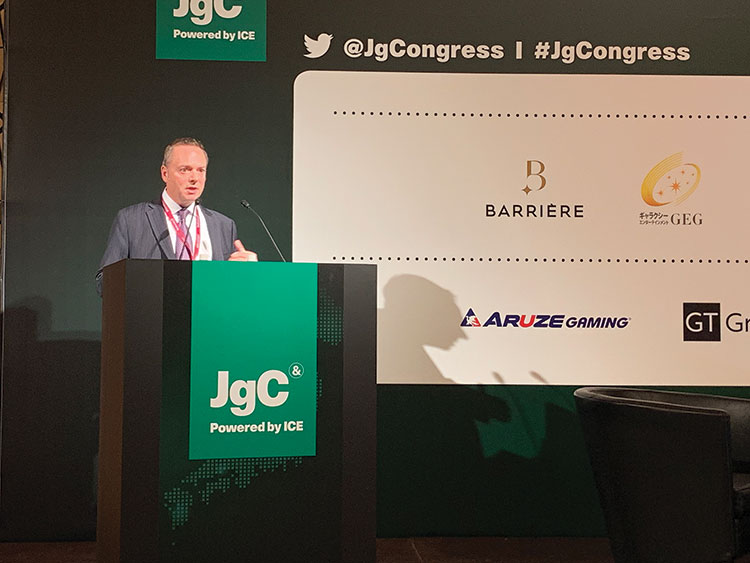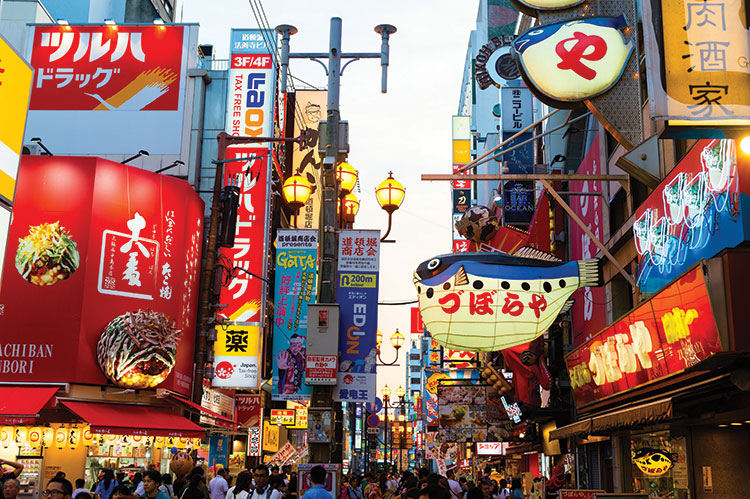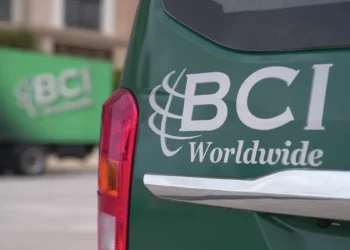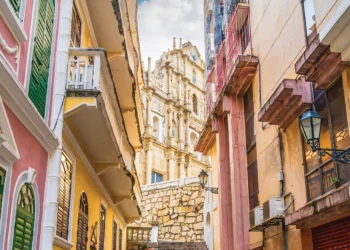With the announcement of the government’s fundamental policy on IRs now delayed and a number of key questions yet to be answered, the road to Japan’s first IRs isn’t looking as smooth as first hoped.
On 22 May, Japan’s national government announced it was postponing the publication of its fundamental policy on the establishment of integrated resorts until after the summer upper house election.
The news didn’t come as a complete surprise, with strong whispers of such a delay having done the rounds at the Japan Gaming Congress (JgC) in Tokyo just a few weeks earlier. However, it did confirm what many had feared – the road to develop Japan’s first IRs is still littered with potholes.
 Also delayed is the establishment of Japan’s casino regulatory body, the Casino Administration Committee, which had originally been set for 1 July 2019 but will now have to wait until the autumn extraordinary Diet session, running from September to December.
Also delayed is the establishment of Japan’s casino regulatory body, the Casino Administration Committee, which had originally been set for 1 July 2019 but will now have to wait until the autumn extraordinary Diet session, running from September to December.
All of which puts the long-held consensus that Japan will welcome its first IRs by 2025 in serious doubt, not to mention the rather ambitions 2024 launch date touted by officials in Osaka.
While MGM Resorts Japan CEO Ed Bowers has maintained a positive outlook in the weeks since – telling a gathering of locals he expected the delay would be “only a few months” and unlikely to have a big impact – others aren’t so sure.
Amid rumours that it could be as long as February 2020 before the fundamental policy is finally released, Morgan Stanley equity analyst Praveen Choudhary says of Osaka, “It is impossible to open before 2025.
“The reason is not that Osaka isn’t doing everything it can,” he explains, “but there are several regulatory processes that need to be signed before they can even start, so time is very much against them.”
The process to bring Japan’s IRs to life already looms as an exhausting one, notwithstanding the fact that it remains on hold until the Ministry for Land, Infrastructure, Transport and Tourism releases the fundamental policy in question. Only then can local governments get to work, with key tasks including announcing their own policy guidelines, launching an RFP process, selecting an operator partner and submitting an IR District Development Plan – all then requiring national government approval before they can be enacted.
Osaka, for its part, is already trying to gain a head start by launching a Request for Concept in April, prompting Choudhary to suggest the city may in fact be granted an IR license before any other location, followed a year or two later by the likes of Tokyo or Yokohama who are yet to commit to any IR bid.

Timing isn’t the only concern for operators, with the increasingly large numbers being thrown about – Melco Resorts Executive Vice President and CFO Geoffrey Davis touted a figure “comfortably exceeding” US$10 billion – sparking questions over financing.
The issues here are two-fold. From a profitability perspective, it is by now well known that Japan’s IRs will be among the most tightly regulated – and heavily taxed – in the world with a flat tax of 30% on GGR. This falls short of the huge 39% tax faced by operators in Macau but is considerably larger than neighbours Singapore (18% for mass and 8% for VIP), the Philippines (25% for mass, 15% for VIP) and Korea (20%) to name just a few.
Profitability will also be limited by a restriction on maximum gaming area to 3% of the total IR floor space, a JPY6,000 (US$56) entry fee for locals and mooted ban on junket operations.
According to David Bonnet, Managing Partner at Delta State Holdings Ltd, such restrictive policies don’t align with the huge development costs expected. As a result, “Due to the huge disconnect between what the Japanese government will write into legislation and what the Japan megabanks are saying they require in order to underwrite a project financing loan, there will be difficulty in obtaining traditional integrated resort mortgage loan financing from local lenders.”
Bonnet adds that while the situation may in fact create significant opportunities for global investment banks, “the structure needs to be different from what we are discussing today.”
The second issue regarding financing relates to the government’s proposed five-year license terms, with operators fearing the lack of security compared with the 20-year licenses granted to Macau’s operators will squeeze most Japanese banks out of the equation due to the added difficulty in achieving the necessary returns.
 “It will make it difficult for operators to secure debt as any debt will have to be based off a 5-year return, instead of a 7-year plus return,” says Global Market Advisors Managing Partner, Steve Gallaway.
“It will make it difficult for operators to secure debt as any debt will have to be based off a 5-year return, instead of a 7-year plus return,” says Global Market Advisors Managing Partner, Steve Gallaway.
“In addition, there is ambiguity with regards to whether the clock starts ticking on those five years from the time that you are awarded the license, or from when you open the doors. For many of these facilities, it could take upwards of five-years to open after being awarded the license.”
During a panel at JgC discussing this very topic, MGM’s Bowers revealed the five year-term was the one issue banks had already raised and in particular “how much cash flow you’ve got to fully monetize that 5-year piece.
“Obviously you have to really consider how that happens,” he explained. “Do you have to increase the equity or do you have to decrease the investment and what does that mean in the context of bidding to win this license? This issue has made the financing significantly less flexible.”
“It adds a level of complexity that I don’t think folks really anticipated beforehand,” offers Mohegan Gaming & Entertainment CEO Mario Kontomerkos. “When you think of the size of the projects we’re talking about … then you layer on this idea of the five-year licensing threshold, I think what that means is the banks will be there but other tranches of debt will likely be required.

“You will have to have investors that are willing to take that risk and I’m not sure the national banks will be there for that.”
GMA’s Gallaway notes that Japan’s impending IR regulations should clarify the length of the license term, as well as other unknowns such as how casino floor space is counted and the leasing of land itself.
But with the government having also stipulated this year an expected minimum floor space of 100,000 square meters of hotel and 60,000 square meters of MICE for any and all operators, the cost of doing business in Japan is only growing larger by the day.

































